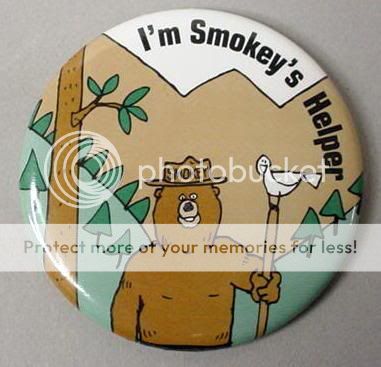The boys and I were just sitting around a fire in the front yard, enjoying the last of what be the best day we've had in a week. The little guy was trying out his new MSR Pocket Rocket stove, boiling up some soup. The big guy was eyeballing an old propane cylinder that had been out in the weather for a couple of years. This was the smaller one, the kind that you use for a lantern ... not the big gas grill ones.
So.... the conversation naturally arose as to how to properly dispose of this cylnder, now that the corroded neck rendered it dubious for its intended purpose.
Well, we disposed of this and two other full cylinders with the Marlin Mod. 336, out in the back yard.
Left a bit of a crater, and a white misty cloud. Metal was heard falling in the forest quite some distance away.
That was pretty cool.
Ahh, summer!
So.... the conversation naturally arose as to how to properly dispose of this cylnder, now that the corroded neck rendered it dubious for its intended purpose.
Well, we disposed of this and two other full cylinders with the Marlin Mod. 336, out in the back yard.
Left a bit of a crater, and a white misty cloud. Metal was heard falling in the forest quite some distance away.
That was pretty cool.
Ahh, summer!

![Frown [frown] [frown]](/xen/styles/default/xenforo/smilies.vb/003.gif)
![Grin [grin] [grin]](/xen/styles/default/xenforo/smilies.vb/041.gif)
![Laugh [laugh] [laugh]](/xen/styles/default/xenforo/smilies.vb/012.gif)

![Smile [smile] [smile]](/xen/styles/default/xenforo/smilies.vb/001.gif)
![Devil2 [devil2] [devil2]](/xen/styles/default/xenforo/smilies.vb/017.gif)